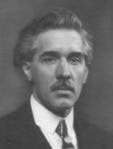|
BIOGRAPHY |
 |
||||||||||||
|---|---|---|---|---|---|---|---|---|---|---|---|---|---|
|
|
|
|
|
|
|
|
|
|
|
|
|
|
|
|
Albert
Dupuis |
Albert DUPUIS (Verviers 1877 - Bruxelles 1967) |
||||||||||||||||||||||||||||||||||||||||||||||||||||||||||||||||||||||||||||||||||||||||||||||||||||||||||||||
|
Albert
Dupuis was indubitably the most prolific Belgian
lyric composer in the first half of the XXth
century, both as regards pure quantity with the
resounding notice encountered abroad and the
dramatic truth of his works. He became also
distinguished in the field of composing pure music
and he produced, always with the same great talent,
a number of trios, quartets, melodies, chorales as
well as many other works for a variety of
instruments. This composer casts an exceptional
figure that would deserve to be known better by the
public of the lyric stage and of grand orchestras.
Although Albert Dupuis retained obviously, from his
period at the Schola Cantorum, a specifically
"post-Franck" discipline of writing that was
typical for the students of Vincent d'Indy, he
succeeded nevertheless, thanks to his openness of
mind, in softening these rules in a music where we
discover an extremely personal melodic vein tinged
with sensitive emotion. None of his works -
including the little pieces written almost
absent-mindedly or under obligation - lack these
characteristic features, such as the numerous pages
destined for the contests of the Conservatoire.
Each composition by Albert Dupuis is characterized
by a unique choice of appropriate themes. We
discover in these phrases that express so much,
features such as frankness, good humor and
simplicity which are present also - although in a
more tragic manner - in the pages that the
unfortunate Guillaume Lekeu barely had the time to
write. Philippe
Bayard (d'après R. Michel) |
|||||||||||||||||||||||||||||||||||||||||||||||||||||||||||||||||||||||||||||||||||||||||||||||||||||||||||||||
|
|
|||||||||||||||||||||||||||||||||||||||||||||||||||||||||||||||||||||||||||||||||||||||||||||||||||||||||||||||
|
|
|||||||||||||||||||||||||||||||||||||||||||||||||||||||||||||||||||||||||||||||||||||||||||||||||||||||||||||||
|
|
|||||||||||||||||||||||||||||||||||||||||||||||||||||||||||||||||||||||||||||||||||||||||||||||||||||||||||||||
